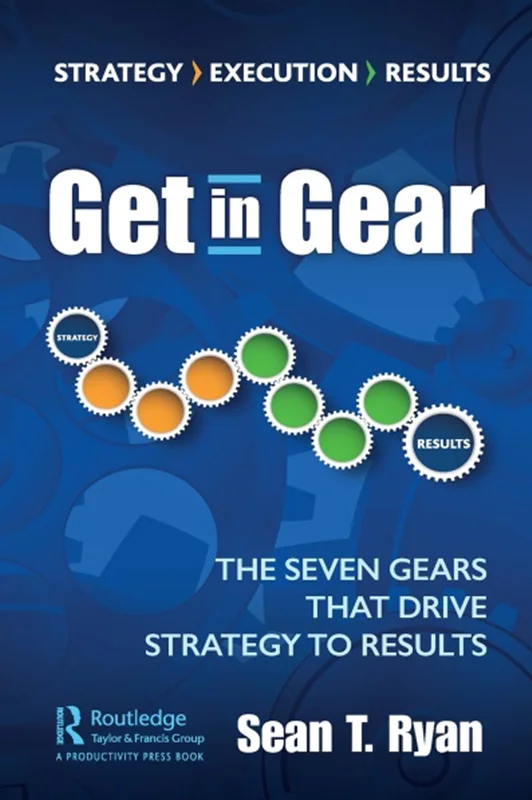Get in Gear: The Seven Gears that Drive Strategy to Results
Sean T. Ryan, 0367472953, 978-0367472955, B089P27P3C, 9780367472955
English | 2020 | PDF | 5 MB | 198 Pages
Shelving Guide: Business and Management/Leadership/Strategy
Only 10% to 25% of organizations get it right when it comes to achieving the expected results from their strategic planning. This means 75% to 90% of them are leaving results on the table and wasting their time on things that don’t matter. Almost a decade ago, a major steel manufacturer approached Sean Ryan and his team to help them think through how to better convert strategy to results. This was the catalyst for the seven gears that translate strategy to results found in Strategy-Execution-Results (SXR™).
Why Gears? Gears transmit energy. The more aligned they are and the less friction in their chain, the better they function. Leaders can easily identify the gear creating the most friction and then take action to better align that gear with the strategy generating better results. This creates momentum to improve the alignment and performance of other gears. This approach also emphasizes the ways everyone in the organization has some influence over every gear. Based on Sean Ryan’s consulting and training with organizations from start-ups to the Fortune 100, he’s found that these performance gears drive better results. You’ll employ them to align your goals with your strategy, create visible scorecards to know whether or not you’re on track, and identify the critical behaviors and actions that will drive performance.
Readers will use this book to point their efforts toward getting meaningful results from their strategy. As noted in the Harvard Business Review: "The prize for closing the strategy-performance gap is huge: increasing performance by at least 50% for most organizations." After moving beyond their initial amazement of just how misaligned they were, they’ll be able to quickly apply the seven gears to sell better and more, drive down costs, improve quality and safety, and recruit talent for the future. In addition, there’s nothing in this book that has not been applied in actual business settings.
While companies could use the SXR™ Framework to overhaul their organization top to bottom, they’ll also appreciate that they don’t have to change everything at once to make progress. Upon understanding each of the gears and how to create Follow-up and Follow-through, they’ll be able to improve any gear to start seeing strategic outcomes.

